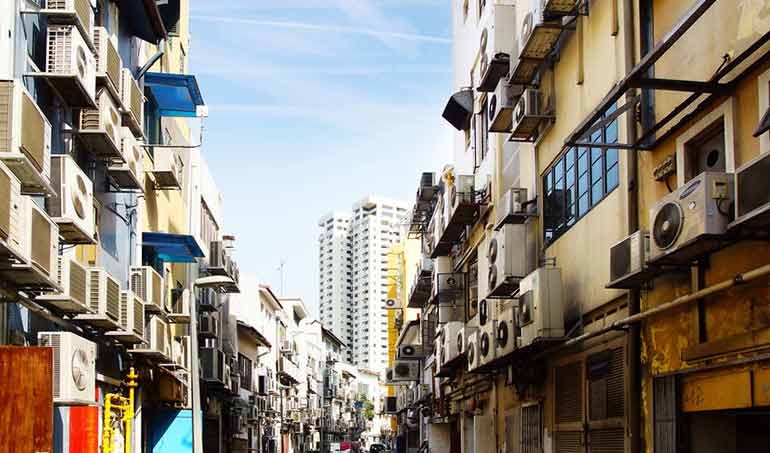Climate-friendly cooling could avoid 600BtCO2e emissions
7th October 2020
AUSTRIA: A new study claims that coordinated international action on “energy-efficient, climate-friendly cooling” could avoid as much as 600 billion tonnes of CO2 equivalent emissions this century.
The International Institute for Applied Systems Analysis (IIASA), an independent international research institute based in Laxenburg, near Vienna, claims tho be the first to try to quantify the overall effects of the Kigali Amendment on both greenhouse gas and air pollutant emissions.
The Kigali Amendment to the Montreal Protocol, which entered into force in 2019, aims to phase down the consumption of HFCs by 2050. While previous agreements have resulted in improvements in the design and energy performance of, for instance, cooling equipment, the Kigali Amendment is the first to include maintaining and/or enhancing the energy efficiency of cooling technologies as an explicit goal.
Potential
The researchers developed a range of long-term scenarios for HFC emissions under varying degrees of stringency in climate policy and also assessed co-benefits in the form of electricity savings and associated reductions in emissions. The results indicate that, due to technical opportunities to improve energy efficiency in cooling technologies, there is potential for significant electricity savings under a well-managed phase-down of HFCs.
“Our results show that the global cumulative HFC emissions from refrigerant use in cooling technologies would have been over 360 billion tonnes CO2 equivalent between 2018 and 2100 in the pre-Kigali baseline scenario. In addition, indirect CO2 emissions from energy production of electricity used in cooling equipment will be approximately the same order of magnitude if the world continues along its present path, without any additional changes in energy policy,” explains IIASA researcher Pallav Purohit, who led the study.
“We found that if technical energy efficiency improvements are fully implemented, the resulting electricity savings could exceed 20% of future global electricity consumption, while the corresponding figure for economic energy efficiency improvements would be about 15%,” adds study co-author and senior IIASA researcher Lena Höglund-Isaksson.
Significant contribution
The researchers say that the combined effect of HFC phase-down, improvement of energy efficiency of stationary cooling technologies, and future changes in the electricity generation fuel mix would prevent between 411 and 631 billion tonnes CO2 equivalent of greenhouse gas emissions between 2018 and 2100, thereby making a significant contribution towards keeping the global temperature rise below 2°C. Transitioning to high efficiency cooling can therefore double the climate mitigation effects of the HFC phase-down under the Kigali Amendment, while also delivering economic, health, and development benefits.
The findings further show that reduced electricity consumption could mean lower air pollution emissions in the power sector, estimated at about 5 to 10% for sulfur dioxide, 8 to 16% for nitrogen oxides (NOx), and 4 to 9% for fine particulate matter (PM2.5) emissions compared with a pre-Kigali baseline.
“To be consistent with 1.5°C scenarios, by 2050 HFCs should be reduced by between 70 and 80% compared to 2010 levels. According to the Kigali Amendment and Maximum Technically Feasible Reduction (MTFR) scenarios we analysed, we could achieve 92.5% and 99.5% reductions in 2050 compared to 2010 levels, respectively. This means that both scenarios surpass the 1.5 ̊C threshold. If carefully addressed during the transition to alternatives that have the potential to relieve global warming, improvement potentials for energy efficiency in cooling technologies are extensive and can bring significant electricity savings,” Purohit added.
IIASA provides scientific guidance to policymakers. IIASA scientists were among the authors of the IPCC Fourth Assessment Report and was a major contributor to the IPCC Fifth Assessment Report .







